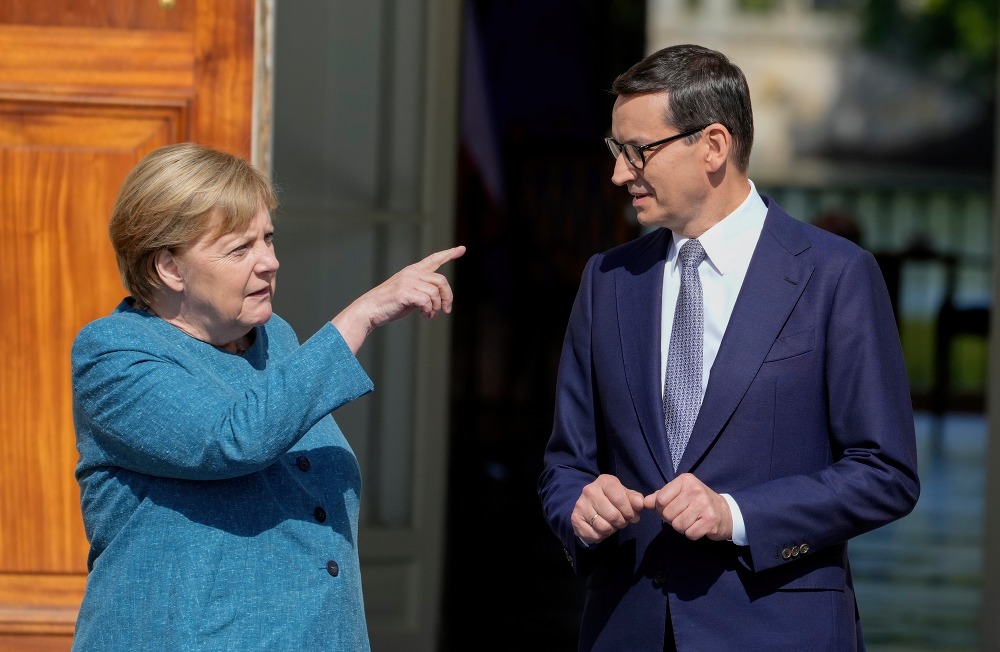Was Angela Merkel’s speech, in which she called for dialogue with the Polish government, a crucial moment in relations between Warsaw, Brussels and Berlin, or is it another smokescreen? Does the German chancellor (who is still in power) really care for “stepping away from confrontation and instead talking to the government in Warsaw to reach a solution to the difficulties in bilateral relations?”
These words are definitely worth noting down and can be considered a gesture of good faith, although one should still be careful. If Angela Merkel wanted peace, she could simply enact it through a few phone calls to the most important players in the EU. The efficiency of the German machine of power in Europe should not be underestimated or even open to much debate.
Nevertheless, I think that Poland is on its way to reaching at least a tactical victory in relations with the EU. Two factors will help decide this.
First of all, the government in Poland turned out to be surprisingly resistant to financial and judicial blackmail. This was pressure that would have broken any other capital, maybe with the exception of Budapest. Meanwhile, in Warsaw, it did not influence the internal coherence of the ruling camp or its polling.
The conflict with Poland with the constitution’s shield in the background, which is meant to protect Poland against Brussels’ expansions beyond EU treaties, has given rise to unexpectedly strong vibrations in all of Europe.
The protests called by the opposition could not have impressed anyone with their small scale. Brussels also sees this and is not entirely sure what to do next. Perhaps repression from Brussels would simply escalate if not for the second factor. The EU’s conflict with Poland has hit a major roadblock with the Polish constitution now acting as a shield that serves to protect Poland against Brussels’ legal expansions beyond EU treaties. Poland’s recent court decision that found the Polish constitution takes precedence over EU law in areas outside the EU treaties has given rise to unexpectedly strong waves in all of Europe. It has sparked discussion, in France for example, which is undermining Brussels’ position and that of the EU’s political-judicial tools used to pacify resistance in nation-states. The forces dissatisfied with the current rules of the game dictated by the EU have now been given wings.
If this process will continue, then it may lead to serious changes in the EU.
The direction given by Poland (the establishment of defense lines using Constitutional Tribunal verdicts) is very easy to utilize and therefore, very infectious.
Today, Brussels finds itself in a difficult and potentially dangerous situation, which is why the current conflict will be snuffed out. In my opinion, Poland will win this battle and achieve its medium-term goals: appropriate funding and a chance to negotiate a compromise concerning judicial reforms.
Who knows, perhaps Poland will also influence others with its example? Bravery may pay off in this case.






